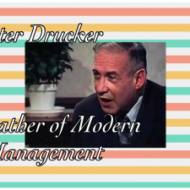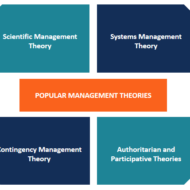Posted by Managementguru in Decision Making, Entrepreneurship, Human Resource, Leadership
on Apr 21st, 2015 | 0 comments

Top Ten Tips for First Time Managers Everybody wants to become a leader. You may vie for it, I might die for it; but in reality not everybody can make a good leader. Leadership does seek persons who are unique in their own way. One unique element which I’ve noticed in managers or leaders is that when they enter the work place, they bring along with them a kind of aura that has the power to make others submissive and polite. Not to say they are over-powering but definitely the sub-ordinates would love to greet their heads with such vigor so as to be in their good books combined with a sense of loyalty laced with respect. This session talks about “First Time Managers” who have reached the position by chance or choice and the etiquettes needed to be bestowed upon that position. 1. Learning is Eternal: “கற்றது கைமண் அளவு, கல்லாதது உலகளவு –This quote by the famous Tamil lady poet Avvaiyar who lived in 13th century reminds you “What you have learned is a mere handful; what you haven’t learned is the size of the world” and exhibited at NASA. It can also be written as “Known is a drop, unknown is an Ocean.” See how appropriate she is in indicating the finer points in our lives- just because you are a team leader or a manager does not mean that you are near perfect. You may be lacking the self-confidence to lead a team or you might be falling short in communicating clearly with the team down the line. It is always better to play along with the team, understand their psychology and at the same time exercise your rights at the right spots. You will stand to gain so much by being flexible and empathetic. 2. Communication is the Key: Here I want to take the help of the ManagementGuru Peter Drucker who prescribed the medicine for better management which is “Management by Objectives.” Keep your team fully informed of project goals, priorities, and all-important deadlines and also involve them to set short term goals. A periodical review of the goals and results would put them in place and make your work easy. Effective communication makes you trust worthy in the eyes of your team, also provides clear direction and a sense of belongingness. 3. Inspire your Team: Passion is one element that is infectious and the other being smile. If you are passionate and sincere in your work, the enthusiasm flows like honey on ice-cream all over the workplace. A good manager creates that “Feel-Good-Factor’ whenever he is around. It is his confidence, emotional stability, communication and determination that gets carried on facilitating effective accomplishment of the enterprise goals. An infographic from AN ETHICAL ISLAND– A great guide for leaders and managers… 4. Be a Friend: Efficient managers understand the pulse of work-force just from their body language and communicating styles. It becomes difficult sometimes to read between the lines when employees are hard nuts to crack and would not explicitly convey or talk about important issues that are bothering them. This may be due to fear, anxiety or peer pressure. These are the times when a manager has to behave like a friend in listening to them patiently to understand the crux of the problem so as to find a suitable solution. 5. Spontaneous appreciation and Mild Criticism: Think about the happiness you derive when somebody appreciates you for a good effort or achievement. The same applies to your team also, right! Appreciation for the sake of appreciating will fetch you only negative results, it has to be spontaneous. Even a mild nod of approval, a...

Posted by Managementguru in Motivation, Quotes and Quotes Only
on Feb 7th, 2015 | 0 comments

Top 50 Quotes from Peter Drucker Peter Drucker is known as the father of modern management. A prolific writer, business consultant and lecturer, he introduced (rather re-invented) many management concepts that have been embraced by corporates all over the world. TOP 50 MARKETING AND SALES QUOTES This modern “Managementguru” has delivered timeless and time-tested ideas on management, leadership, change, education, motivation, marketing and what-not. A lot of companies are successfully functioning based on Peter Drucker’s management concepts. What follows is a compilation of Peter Drucker’s sayings and messages to the management fraternity. His open and result-driven thought process is what attracts me the most. “Doing the right thing is more important than doing the thing right.” “If you want something new, you have to stop doing something old.” “There is nothing quite so useless as doing with great efficiency something that should not be done at all.” “What gets measured gets improved.” “Results are gained by exploiting opportunities, not by solving problems.” “So much of what we call management consists of making it difficult for people to work.” “People who don’t take risks generally make about two big mistakes a year. People who do take risks generally make about two big mistakes a year.” “Meetings are by definition a concession to a deficient organization. For one either meets or one works. One cannot do both at the same time.” “Long-range planning does not deal with the future decisions, but with the future of present decisions.” “Management is doing things right. Leadership is doing the right things” “The best way to predict your future is to create it” “The most important thing in communication is to hear what isn’t being said.” “Unless commitment is made, there are only promises and hopes; but no plans.” “No one learns as much about a subject as one who is forced to teach it.” “Efficiency is doing the thing right. Effectiveness is doing the right thing.” “Whenever you see a successful business, someone once made a courageous decision.” “The leaders who work most effectively, it seems to me, never say “I.” And that’s not because they have trained themselves not to say “I.” They don’t think “I.” They think “we”; they think “team.” They understand their job to be to make the team function. They accept responsibility and don’t sidestep it, but “we” gets the credit. This is what creates trust, what enables you to get the task done.” “The purpose of business is to create and keep a customer.” “Business has only two functions — marketing and innovation.” “Your first and foremost job as a leader is to take charge of your own energy and then help to orchestrate the energy of those around you. “Plans are only good intentions unless they immediately degenerate into hard work.” “Innovation is the specific instrument of entrepreneurship…the act that endows resources with a new capacity to create wealth.” “Trying to predict the future is like trying to drive down a country road at night with no lights while looking out the back window. “ “A manager is responsible for the application and performance of knowledge. “ “Strategy is a commodity, execution is an art.” “The aim of marketing is to know and understand the customer so well, the product or service fits him and sells itself.” “A person can perform only from strength. One cannot build performance on weakness, let alone on something one cannot do at all.” “Management by objective works – if you know the objectives. Ninety percent of the time you don’t. “Most discussions of decision making assume that only senior executives make decisions or that only senior executives’ decisions matter. This is a...

Posted by Managementguru in Business Management, Decision Making, Entrepreneurship, Human Resource, Motivation, Quotes and Quotes Only
on Sep 25th, 2014 | 0 comments

Best Leadership Quotes “Only one man in a thousand is a leader of men — the other 999 follow women. Groucho Marx The Leader In You – #Dale Carnegie “Leadership is the capacity to translate vision into reality. – Warren Bennis Developing the Leader Within You – “You don’t lead by pointing and telling people some place to go. You lead by going to that place and making a case. – Ken Kesey Awaken the Leader in You – Mitesh Khatri “No man will make a great leader who wants to do it all himself, or to get all the credit for doing it.– Andrew Carnegie How To Win Friends Influence People – “Outstanding leaders go out of their way to boost the self-esteem of their personnel. If people believe in themselves, it’s amazing what they can accomplish. – Sam Walton The Leader in You – Peter Miller “To lead people, walk behind them.” – Lao Tzu “The best leader is the one who has sense enough to pick good men to do what he wants done, and the self-restraint to keep from meddling with them while they do it – Theodore Roosevelt “The challenge of leadership is to be strong, but not rude; be kind, but not weak; be bold, but not bully; be thoughtful, but not lazy; be humble, but not timid; be proud, but not arrogant; have humor, but without folly– Jim Rohn “Leadership is a potent combination of #strategy and character. But if you must be without one, be without the strategy – Norman Schwarzkopf “Successful leaders see the opportunities in every difficulty rather than the difficulty in every opportunity – Reed Markham “The problem with being a leader is that you’re never sure if you’re being followed or chased – Claire A. Murray “Do not follow where the path may lead. Go instead where there is no path and leave a trail – Harold R. McAlindon “Learn to see things backwards, inside out, and upside down – John Heider, Tao of Leadership “The real leader has no need to lead- he is content to point the way. #Henry Miller “A leader is a dealer in hope – Napoleon Bonaparte From Manager to Leader “If your actions inspire others to dream more, learn more, do more and become more, you are a leader – John Quincy Adams “The art of leadership is saying no, not yes. It is very easy to say yes – #Tony Blair “Never tell people how to do things. Tell them what to do and they will surprise you with their ingenuity – George Patton “Leadership does not always wear the harness of compromise – Woodrow Wilson “Take time to deliberate; but when the time for action arrives, stop thinking and go in – Andrew Jackson “To be a great leader and so always master of the situation, one must of necessity have been a great thinker in action. An eagle was never yet hatched from a goose’s egg – James Thomas “A good general not only sees the way to victory; he also knows when victory is impossible – Polybius “Leadership is being the first egg in the omelet – Jarod Kintz “Leadership consists of nothing but taking responsibility for everything that goes wrong and giving your subordinates credit for everything that goes well – Dwight D. Eisenhower “##management is doing things right; leadership is doing the right things – Peter F. Drucker...

Posted by Managementguru in Business Management, Entrepreneurship, Human Resource, Leadership, Principles of Management
on Mar 13th, 2014 | 0 comments

Research on Managerial Roles by Henry Mintzberg and Peter Drucker Henry Mintzberg, the canadian academic observed a few managers and analysed their behaviors and arrived at some conclusions which are listed in the table below. He also identified and attributed ten managerial roles of significance in correlation with the managerial functions. S.NoManagement Functions% of time spent1.Relating to external environment1.82.Planning and setting Objectives19.53.Decision-making6.04.Organising15.05.Leadership and inter-personal role28.46.Communication12.67.Control12.78.Staffing4.1 This table very clearly explains the role of a manager as a leader and the extent of influence he exerts on his sub-ordinates. Proper planning and goal-setting are the key contributors for the successful functioning of a firm. LEADER VS. MANAGER Coming to the managerial roles they can be classified as, 1. Interpersonal roles 2. Informational roles 3. Decisional roles Inter-Personal Roles: Figurehead role– The function is more of a ceremonial nature, like attending the family functions of employees, greeting visitors and a manager performs the symbolic duties of a head of the organization.Leader– He has to plan the HR requirements and motivates the staff to perform well. “Managers are people who do things right; leaders are people who do the right thing.” Remember a manager has to be a leader whereas it is not so in the case of a leader.Liaison– The manager acts as a link between the organization and the external environment to build image and rapport. Informational Roles: Monitor– The manager has to update himself with the current scenario in order to utilize the information for organizing and prompt decision-making.Disseminator– The manager has to communicate and distribute information to his subordinates to effectively accomplish the enterprise objectives.Spokesperson– Efficiently has to communicate the company’s policies to prospective clients and others. Decisional Roles: Entrepreneur– He has to be innovative by adapting to the changes in the environment. He has to be adventurous, persistent and strategic during tough times.Disturbance handler– He has to find appropriate solutions to problemsResource allocator– He has to apportion and allocate resources properly besides delegating authority to the work forceNegotiator– He has to negotiate resources outside and conflicts inside the organization. MANAGERIAL DIMENSIONS Managing: Science or Art? One perspective is Managing, like all other disciplines- whether medicine, music composing or even cricket is an art. It is “know-how.” Still managers can use the organized knowledge about management to perform better. So let us put it this way, Managing as practice is an art; the organized knowledge underlying the practice may be referred to as a science. Let them be complementary to each other and be present in peaceful co-existence. Drucker “ON MANAGERIAL FUNCTIONS ” – A manager has to look after The specific purpose and mission of a firmIncrease productivity by making the employees more productiveConsiderate about social impacts and social responsibilities In his view, the areas a manager has to focus and concentrate are 1. Market standing 2. Innovation 3. Productivity 4. Financial and Physical resources 5. Profitability 6. Manager performance and development 7. Worker performance and attitude 8. Public responsibility He says that business has only two functions- marketing and innovation. While others were concentrating on products and commodities, he concentrated on people and their performance. His “management by objectives- MBO ” became a very popular concept though it faced criticism. MBO according to Drucker is a philosophy that rests on a concept of human action, behaviour and motivation. It sets personal goals (both shortterm and longterm) to be achieved by each individual working for the organization and coverts them into challenges to be accomplished, thus motivating the individuals. The Effective Manager The effective manager is a situational manager who evaluates each approach in the light of circumstances and selects the one that most effectively and efficiently achieve individual...

Posted by Managementguru in Business Management, Organisational behaviour, Principles of Management
on Mar 6th, 2014 | 0 comments

Theory of Management History and Evolution To understand the concept of management, a recap of its history and its slow but steady evolution is absolutely necessary. After the advent of machines, thanks to the industrial revolution of the eighteenth century, management has become an entity by itself. Pic Courtesy: Management Theories Since business activity is increasing by leaps and bounds globally, a more organized set up is called for, which has led to the development of different management concepts. Whether you consider management an art or a science, one definite thing is that, science and art complement each other and not mutually exclusive. Management gurus like Peter Drucker, Henry Fayol, Taylor and others have classified the essential features of management, for the benefit of the industry. Theory comes first followed by practice. Management knowledge certainly improves your style of working. How long do you think, luck, intuition or experience can be relied on, without a scientific knowledge of management. It is a thought to be pondered. Hypotheses Practical experimentation and analysis of theoretical hypotheses, yield better results and in course of time you tend to gain more scientific knowledge. Management is a process of planning, organizing, staffing, leading and controlling. Picture Courtesy: Technofunc.com The management process is applicable to all kinds of organizations and firms, be it a private firm, a government institution, a hospital, a school, a college, an university and other financial, profit making or non profit making NGO’s. This clearly indicates that management is a process that involves individuals who work in groups to accomplish their objectives in an effective and efficient manner. Levels of Management Does management pertain only to the top level management? A big no! It applies to managers at all levels. It is a chain reaction and a successful management totally depends on the synergistic activities of the people belonging to that organization. So, care must be taken by the managers to create and design an internal environment that is conducive for the smooth operations of the firm thus increasing the productivity. This does not mean that the external environment can be overlooked. A manager has to respond to the periodic changes, be it social, technological, economic or political in the external environment also. Management styles Management is a must for every organization and the style of management may vary according to the nature and size of business. Large organizations now-a-days prefer a “flat structure“, as it brings their employees closer and reduces the span of management, thus making communication faster. The more the number of levels, the more the conflict and improper communication. Although management pervades the entire organization, it is the duty of the top management cadre to initiate and maintain consistency in the process of management. All managers (by the term “manager “which is a much generalized term, we denote persons who hold authority to get things done; he may be a financial, administrative, human resource or a production executive) have a common aim, that is to create surplus. To increase productivity, create a suitable environment for the effective performance of their group and to solve crisis situations, they must be capable of seeing the “big picture”. Recent Developments A sea of changes has swept the theory of management area in recent times, owing to the development of different approaches. Management theory is criticized to have all the characteristics of a jungle as numerous management practitioners have recorded their findings in the management history. This led to severe confusion as to what management is, and how things should be organized; however, in modern corporate business world, the managerial activity is directed towards growth, thanks to the...










